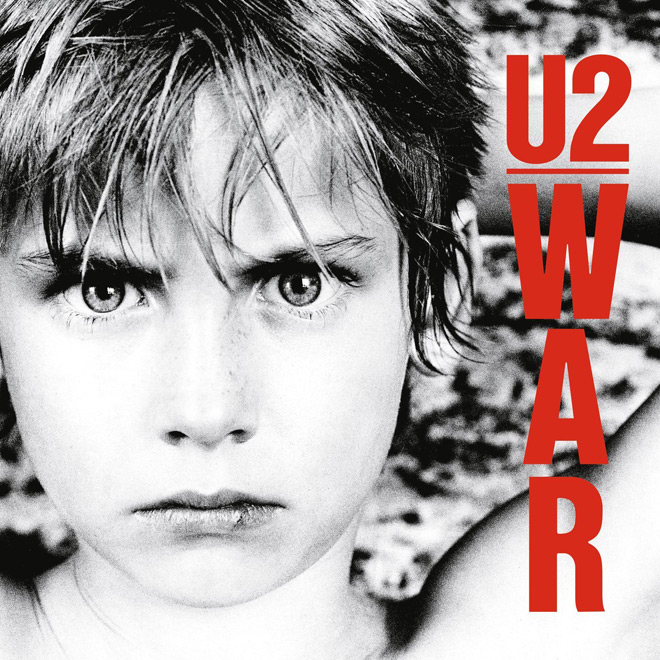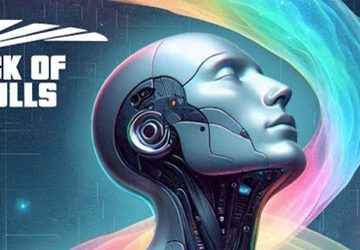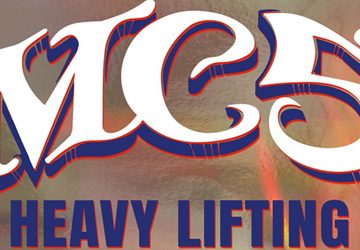Ireland’s unwavering, glorious sons U2 soared to mountainous ranges after the worldwide success of their critically acclaimed fifth, 1987’s The Joshua Tree. However, in fairness to the prolific, enduring, and eternally relevant Post-Punk New Wave band that was formed in 1976, in Dublin, Ireland, they did actually arrive on the international scene as early as 1985, when the charismatic Bono and the rest of U2 – The Edge (lead guitar, keyboards, and backing vocals), Adam Clayton (bass guitar), and Larry Mullen Jr. (drums and percussion) – first performed one of their now classic anthems, “Sunday Bloody Sunday,” at the momentous benefit concert Live Aid, which took place that year at Wembley Stadium in London, England. That song started in 1983 when U2 decided to wage War and began to forge a more politically and socially conscious musical direction.
Released on Monday, February 28, 1983, through Island Records, U2’s third studio album, War, was the band’s first number-one album in the UK. It immediately opened with its killer track, “Sunday Bloody Sunday,” whose introductory emphatic, machinegun snare-drum pounding – to this day – never fails to send shivers down the spine of anyone who has followed the long career of U2. Followed next in the same scathing rhythm, albeit more relaxed beat and sentiment, was “Seconds,” whose Dance Rock sensibilities also foreshadowed what U2 explored in their ’90s phase. Then there was “New Year’s Day” – what is more dramatic and iconic than this signature tune, whose first seven-note piano melody is enough to give the song away, in sweet surrender?
“Like a Song” was U2 in their classic Post-Punk regalia – the Edge’s angular guitars, Clayton’s punchy bass lines, Mullen Jr.’s relentless poundings, and Bono’s chest-shattering vocals. U2 then turned sullen in the ensuing, beautifully orchestrated “Drowning Man,” which featured also the Edge’s shimmering, atmospheric guitars that became his trademark sound for the rest of their long, fruitful, and still ongoing career.
Another Post-Punk, percussive-driven glory came next in the form of the rockin’ stomper “The Refugee.” With the upbeat, guitar-dominated “Two Hearts Beat as One,” Bono and comrades then burst with their big, cutting-edge sound and stadium-ready predisposition. The world’s largest arenas were indeed ready for them as early as that stage.
A definitive sound of the era, the horn-adorned, Disco-glazed “Red Light” aligned U2 with the equally bombastic guitar-oriented New Wave pioneers of the time, such as Duran Duran (“The Reflex”), Big Country (“In the Big Country”), and Cactus World News (“The Bridge”). As they got near the end of their War, U2 relaxed for a bit with the sparse, jazzy, and bluesy undercurrent of the penultimate “Surrender.”
Finally, War culminated with the sing-along, slow, reflective, hopeful ballad “40,” which bore the same sonic genes as the band’s subsequent, equally great ballads like “Bad,” “With or Without You,” “All I Want Is You,” “One,” “Stay (Faraway, So Close!),” “If God Will Send His Angels,” “Stuck in a Moment You Can’t Get Out Of,” “Sometimes You Can’t Make It on Your Own,” “Moment of Surrender,” “Song for Someone,” and “Love Is Bigger than Anything in Its Way.”
U2 has really come a long, long way from that fateful day in the humble kitchen at the home of Mullen Jr.’s family in 1976 when these zealous, ambitious, and persistent young men decided to wage a musical war against the ills of the world. They succeeded. The 35-year-old War is one of the testaments of their novel story. Revisit it as you celebrate its 35th anniversary, and discover U2 all over again!






No comment